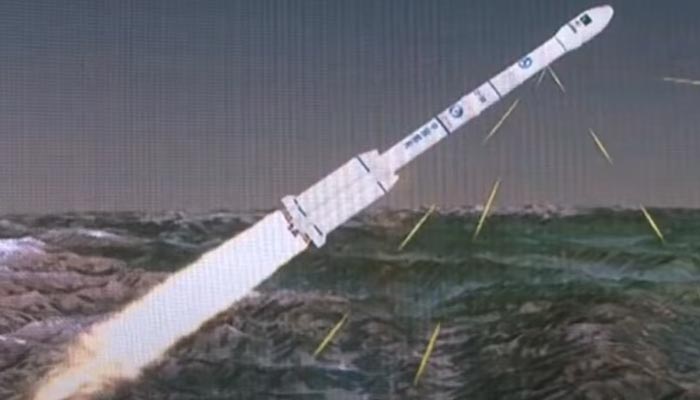Pakistan launches another modern communication satellite into space
The launching of MM1 satellite is a result of the tireless efforts of Pakistani scientists and engineers
Days after the successful launch of Satellite ICUBE Qamar, Pakistan's latest modern communication satellite, MM1, was launched into space from Xichang Satellite Launch Centre (XSLC), China on Thursday.
Based on advanced communication technologies, PakSat MM1 will play a pivotal role in the socio-economic uplift of the country and will prove to be a stepping stone in the transformation of the country into "Digital Pakistan," according to state-run Radio Pakistan.
The launch ceremony was broadcast live from the Islamabad and Karachi establishments of Suparco.
The satellite is expected to contribute to the establishment of a sophisticated communication network and help meet the growing demands of the telecom sector and its advanced capabilities will address the increasing demand for high-speed internet and seamless connectivity.
The agency, in a statement, had said: "This high-power multi-mission satellite will provide communication services in C, Ku, Ka Bands and SBAS services in L Band."
Based on advanced communication technologies, PakSat-MM1 will play a pivotal role in the socio-economic uplift of the country, Suparco said.
Prime Minister Shehbaz Sharif congratulated the nation on the satellite's launch, hoping it would help provide the fastest internet facility throughout the country.
"I am particularly excited about the potential impact of Paksat MM1 on internet connectivity across Pakistan," the premier said in a statement.
The prime minister said that Paksat MM1 would not only enhance the lives of Pakistani citizens but also contribute to the promotion of economic activities, e-commerce, and e-governance.
Before PAKSAT MM1, Pakistan's historic lunar mission (ICUBE-Q) was launched on May 3 on board China’s Chang’E6 from Hainan, China.
The satellite iCube-Qamar mission marked Pakistan’s first lunar exploration effort which is a significant milestone for the country’s space endeavours.
The satellite iCube-Q was designed and developed by the Institute of Space Technology (IST) in collaboration with China’s Shanghai University SJTU and Pakistan’s national space agency SUPARCO.
The satellite successfully captured and transmitted its inaugural images from lunar orbit, providing a unique perspective of the moon’s surface.
-
Shanghai Fusion ‘Artificial Sun’ achieves groundbreaking results with plasma control record
-
Polar vortex ‘exceptional’ disruption: Rare shift signals extreme February winter
-
Netherlands repatriates 3500-year-old Egyptian sculpture looted during Arab Spring
-
Archaeologists recreate 3,500-year-old Egyptian perfumes for modern museums
-
Smartphones in orbit? NASA’s Crew-12 and Artemis II missions to use latest mobile tech
-
Rare deep-sea discovery: ‘School bus-size’ phantom jellyfish spotted in Argentina
-
NASA eyes March moon mission launch following test run setbacks
-
February offers 8 must-see sky events including rare eclipse and planet parade












